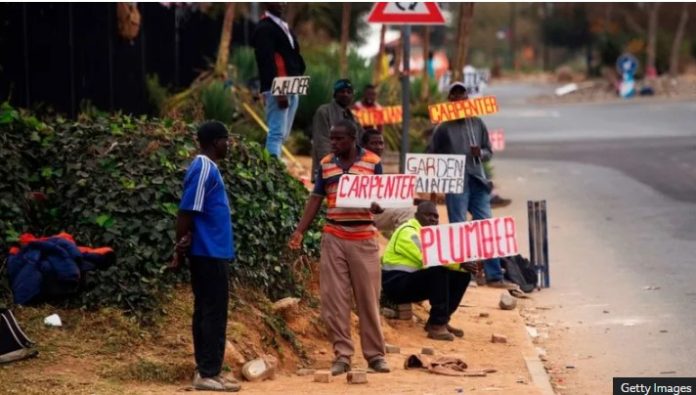South African political parties expressed deep concern on Monday over the alarming rise in violent crimes in the country, with some describing the situation as a “bloodbath.”
Between April and June 2024, South Africa recorded approximately 6,198 murders and 9,000 rapes, according to the Ministry of Police. These shocking statistics have heightened the sense of insecurity across the nation.
“Crimes against women and children remain a serious concern,” political leaders emphasized in media statements responding to the release of the country’s quarterly crime statistics. The data revealed that 966 women were murdered during this period, a 7.9% increase, while over 13,000 women were victims of assaults intended to cause grievous bodily harm. Additionally, 314 children were killed.
Commenting on the grim figures, Brett Herron, Secretary General of the Good Party, said the statistics “once again paint a horrific picture of what it is to be a woman in South Africa,” calling for increased funding and actions to combat this scourge.
Ian Cameron, spokesperson for the Democratic Action party, described the situation as a “bloodbath,” stating, “It is extremely worrying to see the bloodshed that so many South Africans must try to survive every day.”
Experts argue that urgent measures are needed if South Africa is to curb the escalating crime rates. They call for immediate reforms in response to the surging crime levels, criticizing ineffective policing strategies and inadequate resources.
Gareth Newham from the Institute for Security Studies (ISS) stated that this year has been the worst in terms of crime, particularly violent crime. “This is concerning because it indicates that the police have not been able to adapt or improve their operations, intelligence, and investigations,” he noted.
Newham explained that systemic weaknesses within the police force are hindering its ability to address the crime challenges faced by South Africans. “These persistent trends are merely a reflection of the deeply rooted capacity issues within our police force across various communities,” he added.
In a press conference, Police Minister Senzo Mchunu acknowledged that crime is one of the most severe challenges facing the country.
South Africa remains one of the most dangerous countries globally, with crime rates—ranging from murder, armed robbery, and kidnapping to rape and other violent crimes—exceeding those of many other nations. Additionally, a report on governance in South Africa, released Monday, highlighted widespread corruption and mismanagement in local governments.
The report by Auditor General Tsakani Maluleke revealed that only 34 out of the country’s 257 municipalities received clean audits for the 2023 fiscal year. “The poor financial stability of local governments directly impacts the communities they serve,” the report noted.
Reacting to the report, the General Industries Workers Union of South Africa (GIWUSA) expressed concern over the deteriorating state of municipal governance in the country.
“The report’s revelations of widespread mismanagement, corruption, and incompetence are a damning indictment of the ruling class’s inability to govern effectively,” said GIWUSA spokesperson Koketso Phasha in a statement. He added that there is a lack of political will to address the problems facing struggling local governments.
Corruption Watch has recently warned that targeted attacks against investigators in South Africa threaten anti-corruption efforts and raise concerns about the independence and effectiveness of the justice system.
Karam Singh, head of the South African anti-corruption organization, cautioned that these targeted attacks risk derailing key investigations and discouraging future efforts, posing a significant challenge to those determined to eradicate the scourge of corruption, which is undermining South African society and hindering economic growth.
“Billions of dollars have been stolen from the country’s finances, and nothing has happened to those identified by the Judicial Commission of Inquiry into State Capture,” lamented the human rights watchdog.
South African President Cyril Ramaphosa acknowledged before Parliament that the effects of state capture and widespread corruption continue to plague the nation.





